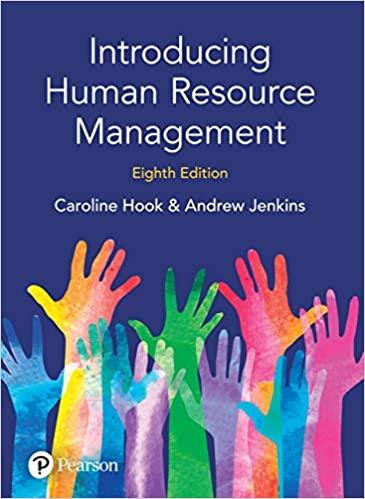Social media has transformed the job market in just a decade. On one side are employers taking
Question:
Social media has transformed the job market in just a decade. On one side are employers taking an increasing interest in the digital footprints of job applicants.
On the other, are those applicants and employees who want to make sure they catch a recruiter’s eye because they are a good fit for the job — not because of a Facebook photo that is embarrassing, or worse.
These markets have generated a flourishing group of companies such as Fama Technologies, which uses machine learning to sift through online posts and identify undesirable traits and habits such as sexism, racism and drug use. Online reputation consultants help people make sure their Instagram and Twitter accounts do not raise red flags in the first place. “You can’t imagine . . . that your private life and your business life are perfectly separable for your prospective employers and partners,” says Michael Fertik, the founder of Reputation.com, a pioneer in the field of reputation management.
A 2017 survey by CareerBuilder, the US recruitment company, found that 70 per cent of companies used social media to screen candidates when hiring, up from 60 per cent in 2016 and 11 per cent in 2006.
More than half of employers had found postings that led them not to hire a candidate for an open role, CareerBuilder says. Fama Technologies says it has helped its corporate clients screen more than 11m pieces of publicly available content from employees and job seekers. About 14 per cent of the content examined raised flags for sexism or misogyny; 10 per cent raised alarms for bigotry, racism or hate speech.
Fama claims it is protecting the reputations of companies and improving hiring, potentially saving a company that employs 1,000 people more than $1m a year from increased turnover and less absenteeism by not hiring badly behaved employees. In Europe, a tighter data protection regime has limited the extent of screening that employers can conduct while hiring.
Guidelines published last year said companies would require a “legal ground” to check applicants’ social media profiles, specifying that the data collected must be necessary and relevant to their job performance.
But the practice is increasingly the norm in the US —
and it is not just employers who may be digging into your internet history. The American Civil Liberties Union has asked the US government to disclose how federal agencies from the State Department and the Federal Bureau of Investigation to Immigration and Customs Enforcement are monitoring social media accounts, including those of immigrants and people applying for visas.
Online profiles have become weapons in political disputes: in the past year a number of high-profile people in entertainment and journalism in the US have been targeted by right-wing activists over old social media posts. In July this year, Walt Disney fired James Gunn, the writer and director of its Guardians of the Galaxy film franchise, over old, deleted tweets containing distasteful jokes about paedophilia and rape. “The offensive attitudes and statements discovered on James’ Twitter feed are indefensible and inconsistent with our studio’s values and we have severed our business relationship with him,” the company said in a statement. Gunn, for his part, apologised on Twitter, saying “I used to make a lot of offensive jokes. I don’t anymore.”
Even without touching on controversial topics or making off-colour jokes online, the trail we leave as we move through an increasingly digital world can have long-lasting consequences. “What’s changed in the last year or two is the average consumer is starting to care about this,” says Patrick Ambron, chief executive of BrandYourself, an online reputation management company. “Now everybody has a really big online presence compared to a few years ago. And even if you’re not active online, your friends are. There are thousands of images and social media posts going up and you’re being tagged.” While many big reputation management companies target businesses struggling with bad publicity, or individuals caught in embarrassing and damaging scandals, BrandYourself has broadened its aim to not only help people manage bad search results, but also to suggest ways of building a robust and relevant digital profile. “There are more tools that are helping employers screen better. Their goal is to use data to make better hiring decisions,”
Ambron says. “Employers are not just looking for negative things — they want reinforcing factors as..........
Questions 1. In what ways have social media transformed how organisations recruit and select?
2. Do you think it is ethical for organisations to use social media to screen candidates when hiring?
3. How might you, as a candidate for a job, use social media to find out more about the organisation to which you have applied and who might be interviewing you?
4. What online information about yourself might encourage an employer to hire you and what information might inhibit an employer from hiring you?
Step by Step Answer:

Introducing Human Resource Management
ISBN: 9781292230344
8th Edition
Authors: Caroline Hook, Andrew Jenkins





